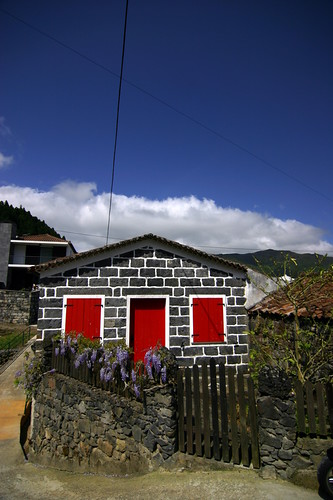Due to the extraordinary clarity of the mid-ocean waters which enhance the exuberance of these communities and the beauty of the seabed even further, one can hardly imagine that this splendid seascape could suffer from environmental degradation.
Local and historical knowledge, however, suggest that there has been significant depletion of some of the marine resources around the Formigas Islets in particular, with noticeably fewer commercial species such as locust lobsters and limpets, as well as some demersal fish species. The variety and intensity of fishing over the bank which is expected to further increase due to the depletion of fishing grounds in the Eastern Azores, are the principal threat to the marine resources of the area and result from both commercial and recreational activities.
The remoteness of the Formigas Bank makes it difficult to enforce existing legal regulations, forbidding the collection of any molluscs, crustaceans or algae, sports fishing, spearfishing, fishing with trammel nets, bottom long lining (artisanal fishing with up to 14 m boats allowed). These activities increasingly threaten the ecological integrity of the Formigas Bank.
Research is directed at studying the movements of demersal fish across Azorean seamounts and assessing their role as spawning and nursery grounds. If these functions prove real, the impact of the extractive activities could have far-reaching implications for commercial fisheries.
Local and historical knowledge, however, suggest that there has been significant depletion of some of the marine resources around the Formigas Islets in particular, with noticeably fewer commercial species such as locust lobsters and limpets, as well as some demersal fish species. The variety and intensity of fishing over the bank which is expected to further increase due to the depletion of fishing grounds in the Eastern Azores, are the principal threat to the marine resources of the area and result from both commercial and recreational activities.
The remoteness of the Formigas Bank makes it difficult to enforce existing legal regulations, forbidding the collection of any molluscs, crustaceans or algae, sports fishing, spearfishing, fishing with trammel nets, bottom long lining (artisanal fishing with up to 14 m boats allowed). These activities increasingly threaten the ecological integrity of the Formigas Bank.
Research is directed at studying the movements of demersal fish across Azorean seamounts and assessing their role as spawning and nursery grounds. If these functions prove real, the impact of the extractive activities could have far-reaching implications for commercial fisheries.



No comments:
Post a Comment